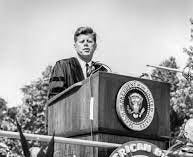
Cuban Television last night aired Oliver Stone’s documentary, JFK revisited, which provided me with an opportunity to see the 2021 documentary for the first time. The documentary reaffirms facts and interpretations that had been published in 2008 in a persuasive and comprehensive review of the JFK assassination literature by James Douglass,1 which Robert F. Kennedy, Jr., has characterized as the best book on the assassination.
Stone and Douglass review the various contradictions with respect to the questions of who was behind the assassination, and what were the reasons for it. They arrive to essentially the same conclusions, with Stone declaring that “conspiracy theories have become conspiracy facts.” They concur that the CIA ordered the assassination and covered it up, because the intelligence agency was opposed to Kennedy…


